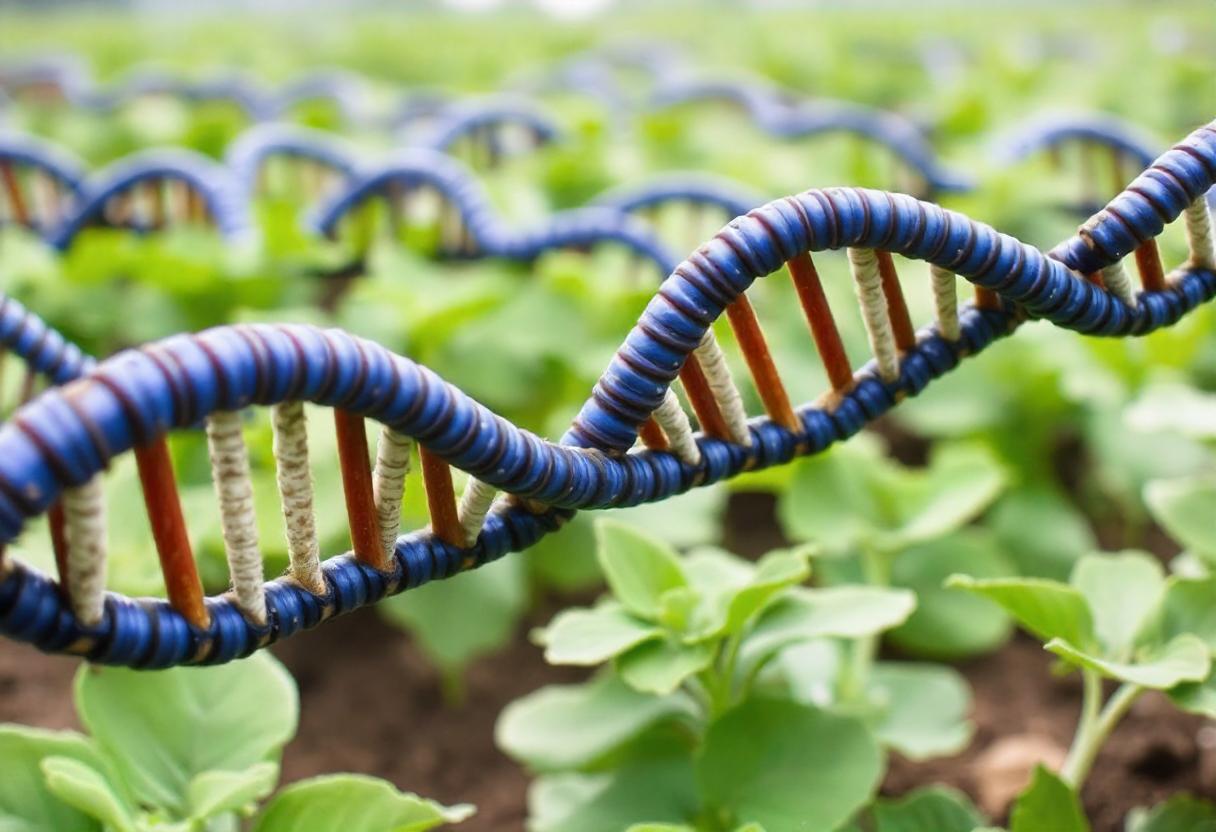
Introduction
Genetically Modified Organisms (GMOs) represent one of the most transformative innovations in modern agriculture and biotechnology. By altering the genetic makeup of organisms, scientists have created crops and animals with desirable traits that improve yield, resilience, and nutritional value. This article delves into the science behind GMOs, their applications, benefits, concerns, and the ongoing debate surrounding their use.
What are GMOs?
Genetically Modified Organisms (GMOs) are living organisms whose genetic material has been artificially manipulated through genetic engineering techniques. These modifications are made to introduce new traits or enhance existing ones. GMOs can be plants, animals, or microorganisms.
How Are GMOs Created?
- Gene Isolation: The process begins by identifying and isolating a gene responsible for a specific trait. This gene could come from another plant, animal, or microorganism.
- Gene Insertion: The isolated gene is then inserted into the DNA of the target organism using various techniques such as:
- Agrobacterium-Mediated Transformation: Using a bacterium that naturally transfers DNA into plant cells.
- Gene Gun Method: Shooting microscopic particles coated with DNA into plant cells.
- CRISPR-Cas9: A more recent technique that enables precise editing of the genome.
- Selection and Regeneration: Cells that successfully incorporate the new gene are selected and regenerated into whole plants or animals.
Applications of GMOs
- Agriculture:
- Pest Resistance: GM crops like Bt cotton produce proteins toxic to specific pests, reducing the need for chemical pesticides.
- Herbicide Tolerance: Crops such as Roundup Ready soybeans can withstand glyphosate herbicides, allowing farmers to control weeds more effectively.
- Enhanced Nutritional Content: Golden Rice is engineered to produce higher levels of Vitamin A, addressing nutrient deficiencies in developing countries.
- Medicine:
- Pharmaceutical Production: GMOs are used to produce drugs such as insulin and growth hormones more efficiently.
- Gene Therapy: Research into using GMOs for treating genetic disorders by inserting or modifying genes in human cells.
- Environmental Management:
- Bioremediation: GM bacteria can be designed to break down pollutants in contaminated soils and waters.
- Sustainable Agriculture: Crops engineered for drought resistance and soil enhancement can contribute to more sustainable farming practices.
Benefits of GMOs
- Increased Agricultural Productivity: GMOs can significantly boost crop yields by making plants more resistant to pests, diseases, and environmental stresses.
- Reduced Chemical Use: By enhancing pest resistance and herbicide tolerance, GMOs can reduce the need for chemical pesticides and herbicides, which can be harmful to the environment.
- Improved Nutritional Content: Genetic modifications can enhance the nutritional profiles of crops, potentially addressing global issues of malnutrition.
- Economic Advantages: Farmers growing GM crops can experience cost savings from reduced need for chemicals and higher yields, which can lead to increased profitability.
Concerns and Controversies
- Health Risks: Some critics express concerns about potential long-term health effects of consuming GMOs, though scientific consensus generally supports their safety. Regulatory agencies such as the FDA, EFSA, and WHO have found no significant risks associated with GMOs.
- Environmental Impact: There are concerns about GMOs’ effects on biodiversity and the environment. For example, herbicide-resistant crops may lead to the emergence of “superweeds” that are resistant to standard herbicides.
- Ethical and Societal Issues: The manipulation of genetic material raises ethical questions about the extent of human intervention in natural processes. Additionally, there are debates about the control of seed patents and the impact on small-scale farmers.
- Economic Concerns: The consolidation of seed patents in a few large companies can lead to increased seed prices and potential monopolistic practices, affecting farmers and agricultural diversity.
Regulation and Labeling
GMOs are subject to rigorous testing and regulation before they are approved for commercial use. In the United States, the FDA, USDA, and EPA are responsible for assessing the safety and environmental impact of GMOs. In the European Union, the regulatory process is particularly stringent, with extensive risk assessments and labeling requirements.
Genetically Modified Organisms (GMOs) represent a powerful tool with the potential to address some of the most pressing challenges in agriculture, medicine, and environmental management. While their benefits are substantial, ongoing research, transparent regulatory practices, and open dialogue are essential to addressing the concerns and ensuring that GMOs are used responsibly. As science and technology continue to advance, the role of GMOs in shaping the future of our world will likely remain a topic of significant importance and debate.